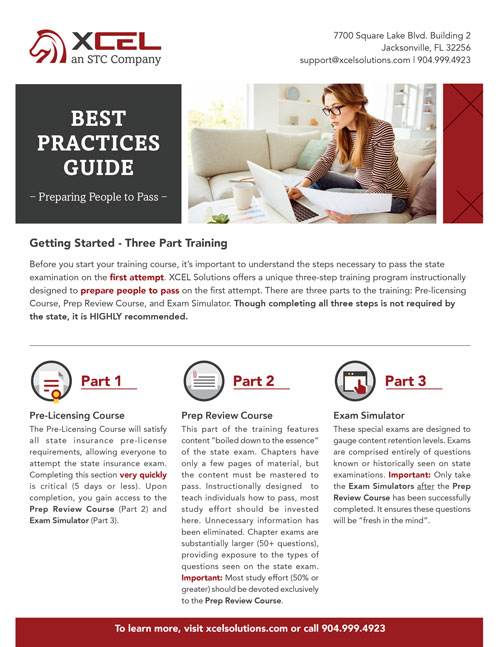Whether you gauge success by the number of policies you’ve penned or the roster of new clients you’ve welcomed into your network, the journey to becoming a highly successful insurance agent is marked by certain shared qualities. A successful agent must seamlessly blend sales acumen with top-notch client service skills. This synergy not only secures deals but also fosters enduring client relationships. A deeper dive into five essential qualities of top-performing agents can help you analyze your performance, identify areas for improvement, and enhance your clients’ satisfaction.
#1. Self-motivated
Successful insurance agents often possess a high level of intrinsic motivation. They find personal satisfaction and fulfillment in achieving their goals, whether it’s meeting sales targets, building strong client relationships, or expanding their client base. This intrinsic motivation helps them stay focused and committed to their objectives even when faced with challenges.
As you may know, the insurance industry can be dynamic and challenging, with market fluctuations, competition, and unexpected obstacles. A self-motivated agent exhibits resilience and persistence, viewing challenges as opportunities for growth rather than setbacks. This resilience enables them to navigate through tough times, learn from setbacks, and continuously improve.
#2. Service-oriented
Successful insurance agents are genuinely passionate about helping clients. They go beyond just selling insurance policies; they aim to understand the unique requirements and concerns of each client. They see themselves as advisors rather than mere salespeople, guiding clients through the complexities of insurance and offering recommendations based on a thorough understanding of the client’s situation.
To excel at client service, successful insurance agents also need:
-
Good communication skills. They listen actively to clients, understand their specific situations, and explain complex insurance concepts in a clear and comprehensible manner. Effective communication is essential for building trust, addressing client concerns, and ensuring that clients make informed decisions about their insurance coverage.
-
Empathy and compassion. They recognize that clients may be dealing with challenging situations, such as accidents, health issues, or property damage. By empathizing with clients and demonstrating genuine concern, agents not only provide better service but also contribute to the emotional well-being of their clients during difficult times.
#3. Good at relationship-building
Successful insurance agents focus on building lasting relationships rather than pursuing short-term gains. They understand that a satisfied and loyal client is more likely to renew policies, refer others, and contribute to the agent’s insurance career success. This emphasis on relationship-building extends throughout the entire life of the client’s policy.
Building strong relationships requires being responsive and accessible to clients. Successful insurance agents promptly address inquiries, provide timely updates, and offer support when needed. This level of responsiveness enhances the client’s experience and reinforces the perception that the agent is a reliable and attentive partner.
Relationship-building doesn’t end after the initial sale. Successful insurance agents consistently follow up with clients to ensure that their insurance coverage remains aligned with their changing needs. Regular check-ins demonstrate a commitment to the client’s long-term satisfaction and reinforce the agent-client relationship.
As in any business relationship, challenges and issues may arise. A relationship-builder excels at problem resolution, working collaboratively with clients to address concerns, navigate claims processes, and find satisfactory solutions. Successfully resolving issues reinforces the client’s trust in the agent’s ability to handle difficulties effectively, and greatly contributes to insurance career success.
#4. Highly organized
Insurance agents often deal with a complex workload that includes managing client relationships, processing policy applications, handling claims, staying updated on industry regulations, and meeting sales targets. Being highly organized is one of the qualities of top-performing agents because it enables them to effectively navigate and manage these various responsibilities.
Highly organized agents stand out in their abilities to:
-
Manage time efficiently — They prioritize tasks based on urgency and importance, ensuring that critical activities are addressed promptly. Efficient time management allows them to handle multiple responsibilities without compromising the quality of their work.
-
Setting and working toward goals — This involves creating action plans, timelines, and milestones to guide their daily and long-term activities. A well-structured plan helps agents stay focused, track progress, and adapt to changing circumstances.
-
Adapt to change — Organized agents are better equipped to handle unexpected changes or challenges. They can quickly adjust their plans and priorities, ensuring that the workflow remains smooth and objectives are still met. This adaptability is crucial in a dynamic industry where market conditions and client needs can change rapidly.
#5. Lifelong learner
Insurance regulations, products, and market trends are constantly evolving. Successful insurance agents recognize the importance of staying informed about these changes. Being a lifelong learner means actively seeking out and absorbing new information to maintain a comprehensive understanding of the industry landscape.
It also means actively seeking personal development, which often opens up opportunities for career advancement. Insurance agents who continuously refine their skills are more likely to be considered for leadership roles, promotions, and challenging assignments. Insurance firms value agents who are committed to ongoing learning, as they bring fresh perspectives and enhanced capabilities to their roles.
Lifelong learners often engage in networking activities, such as attending conferences, workshops, and industry events. These opportunities not only provide exposure to new ideas but also facilitate connections with other successful insurance agents. Networking can lead to collaborations, mentorship opportunities, and the exchange of valuable insights within the industry.
And finally, personal development contributes to job satisfaction and career fulfillment. Lifelong learners who actively pursue opportunities for growth are more likely to find their work meaningful and engaging. The sense of accomplishment that comes from acquiring new skills or achieving personal milestones positively impacts job satisfaction. It is an investment in your own insurance career success and a commitment to being a lifelong contributor to the field.
Do you have what it takes to be a successful insurance agent? Get started on your pre-licensing and insurance exam preparation with XCEL. Our 3-Part Training Programs for insurance licensing in life and health, and property and casualty, help you prepare to pass the first time!




